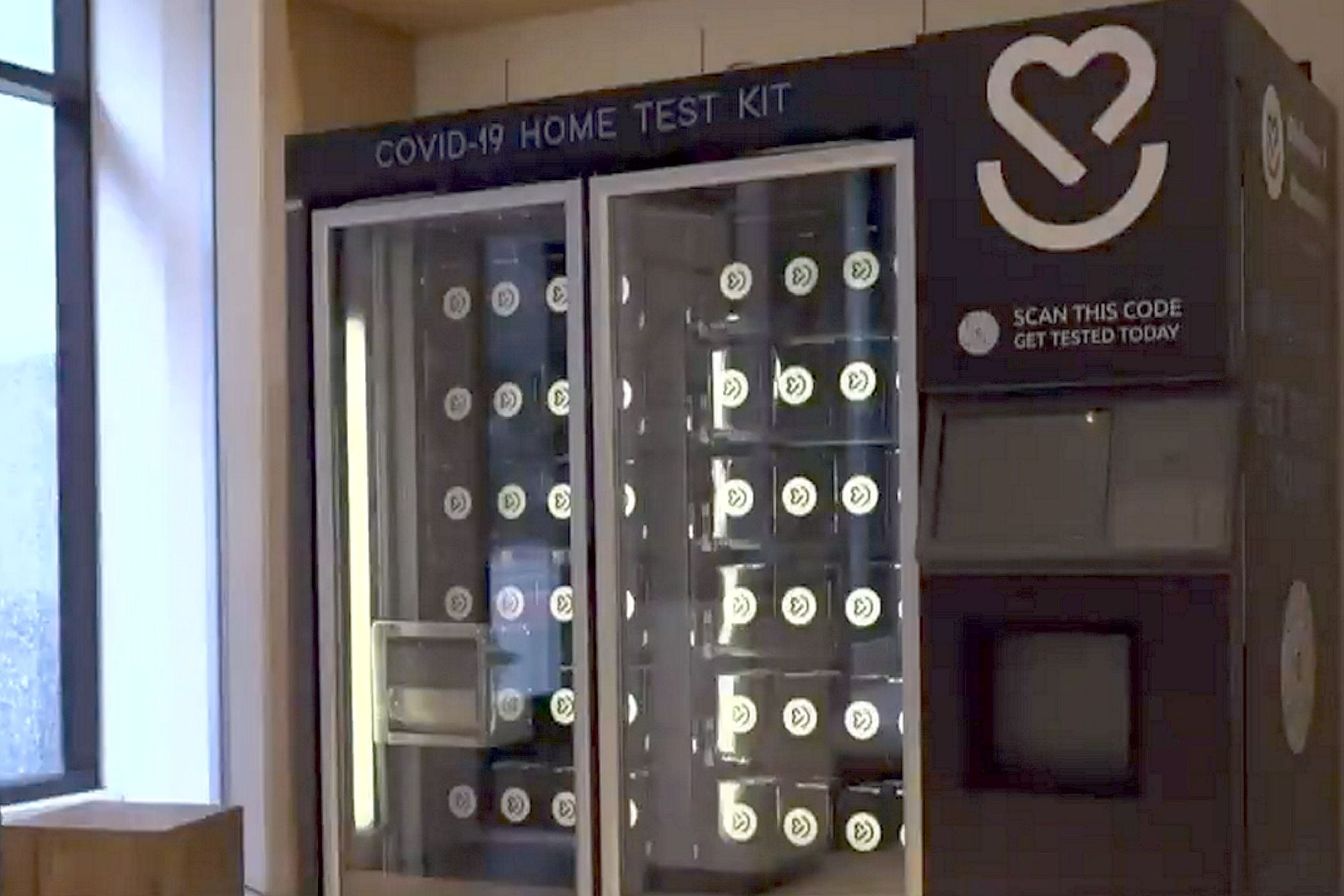From gadgets and skincare to personal surgical masks and hand sanitizers, consumers today can get almost anything from a smart vending machine. Now with the rollout of Wellness 4 Humanity's automated kiosks, they can get take-home COVID-19 tests, too.
"Especially for travelers, or somebody that just got recently exposed and want to have their test kits immediately on-site, they can simply come online, purchase a test kit there, [and] come into our closest vending machine," said Pavel Stuchlik, Wellness 4 Humanity co-founder.
Wellness 4 Humanity's automated kiosks may look like souped-up versions of what you might find in a hotel lobby, but they are substantially different. For one thing, their offerings, saliva-based PCR tests, start at $130 bucks. Even though COVID-19 testing is free in many places, Wellness 4 Humanity customers are paying for convenience. Each test comes with a prepaid shipping label with results guaranteed within 24 to 48 hours. W4H CEO Lian Pham also said the saliva component means the tests are less painful and less vulnerable to user error than the nasal swab tests.
"Not only is it noninvasive, it's not dependent on technique, which we see a lot of false negatives and errors in there based on just technique," she said.
Customers don't actually purchase the tests from the machine. They must first buy the kits online from Wellness 4 Humanity's website. A QR code sent to a purchaser's phone activates the machine, which dispenses the kit. In the coming weeks, W4H hopes to roll out antigen tests that provide results within 15 minutes.
On the machine itself, W4H partnered with San Francisco-based tech company Swyft, which has more than 1,000 automated kiosks in 50 U.S. states, plus Australia, Canada, Japan, and countries in Europe. Swyft has partnered with brands like Benefit, Best Buy, CVS, Nespresso, and others on kiosks that Swyft senior vice president of corporate development Ian Benson said resemble attendant-less storefronts more than vending machines. The company even partnered with the Metropolitan Transportation Authority (MTA) to put machines containing personal protective equipment in select subway stations in New York City.
"The demand has been phenomenal. People forget their masks, people suddenly realize they need some hand sanitizer," Benson said.
Swyft's machines may cut down on human contact by removing shopkeepers, but many of the kiosks have touchscreens, including the ones in the subway. Benson said future kiosks will be entirely contactless in response to changing consumer demands amid the coronavirus pandemic. According to a Mastercard survey of 17,000 consumers across 19 countries, some 82 percent said they felt contactless payments were cleaner, and roughly three quarters said they would continue to use contact-free payment methods post-pandemic.
"People want less and less contact, unfortunately, with people, and also, even with equipment. So if they have an option now to purchase something without actually even touching anything, or even interacting, getting too close to people, that's under big demand at the moment," Benson said.



